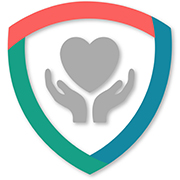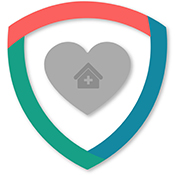We often hear people talk about relying on God’s strength through the difficult times. But what does that look like? How do we find strength for the long haul, especially when we are so tired?
We can learn from the ways Jesus handled His own caregiving responsibilities while on Earth.
- He frequently spent time alone in prayer
- He often prayed with His closest friends
- He publicly thanked God the Father for what God had provided.
- He faced each crisis with calm assurance because He had placed His confidence in God
- He delegated work to other people
- He grieved the losses of those He loved with a sense of hope, because He had an eternal perspective
I am sure if you think and pray upon it, you will find many examples from Jesus’ life that model for us the attributes that can make our caregiving more rewarding and fulfilling. But even if we just focus on the above points, we can grow closer to our Lord as we do the work of being His hands and feet for our loved ones.
Look to Jesus as your ultimate model of a Giver of Care (emotionally and spiritually), and follow His example in your own caregiving work. Obviously prayer is an important part of this, as ½ of his techniques involved prayer. If you are at a loss for prayer, don’t worry. God already gave us one; The Lord’s Prayer. Don’t forget to ask others to pray for you and your family as you navigate this difficult time of life. I know when I have had my greatest pain and hardships, I could actually feel the prayers of others when I felt too lost to pray myself.
Jesus faced each crisis with calm assurance because He had placed His confidence in God. We need to ask ourselves if we are keeping God’s promises forefront in our mind; which can be difficult to do when overwhelmed with your own life, plus taking care of someone. How can I switch over to this calm assurance? For myself, I leave post it notes on the mirro in my bathroom. Little inspirational sayings or bible verses. Goodness knows that my mind is so busy thinking of what I have to do next, that these positive thoughts might never enter my brain if I don’t have some sort of reminder. The same goes for the eternal perspective. Reminders and prayers work.
Yes, Jesus delegated. You can too! Using the Genus™ app, you can create a care circle of friends and family to provide respite care or perhaps a meal. If your church is involved with using Genus™, then maybe you can enlist help there as well. Don’t feel you shouldn’t ask for help. Jesus asked for help. Remember that you are providing an opportunity for others to be blessed by being His hands and feet for your loved one. Being a martyr and trying to do it all yourself doesn’t honor God or your loved one.
Jesus did all these things and more. We can use him as our Givers of Care Role Model. He wants to help. All we have to do is ask!
 One of the most difficult situations to deal with when caring for a loved one with a brain disease such as dementia, is when the patient cannot clearly communicate his/her wants and needs. Even when we have provided the necessary home-care or nursing care for their safety, we worry how their emotional safety and if their needs are being met. How can our loved ones communicate needs, interests and desires when they can’t clearly communicate?
One of the most difficult situations to deal with when caring for a loved one with a brain disease such as dementia, is when the patient cannot clearly communicate his/her wants and needs. Even when we have provided the necessary home-care or nursing care for their safety, we worry how their emotional safety and if their needs are being met. How can our loved ones communicate needs, interests and desires when they can’t clearly communicate? One of the most important aspects of physical safety for chronic patients is dealing with the myriad of medications involved in their care. In fact, medication errors may be one of the first warning signs you saw that led you to realizing your loved one needed additional help.
One of the most important aspects of physical safety for chronic patients is dealing with the myriad of medications involved in their care. In fact, medication errors may be one of the first warning signs you saw that led you to realizing your loved one needed additional help. It can be so overwhelming deciding what kind of outside help to hire for your aging loved one. Who should you hire? How do you find them? Are they qualified? Can they be trusted to care for your parent? What questions should you ask? What is the cost? How do I find the best care possible for my parent?
It can be so overwhelming deciding what kind of outside help to hire for your aging loved one. Who should you hire? How do you find them? Are they qualified? Can they be trusted to care for your parent? What questions should you ask? What is the cost? How do I find the best care possible for my parent?